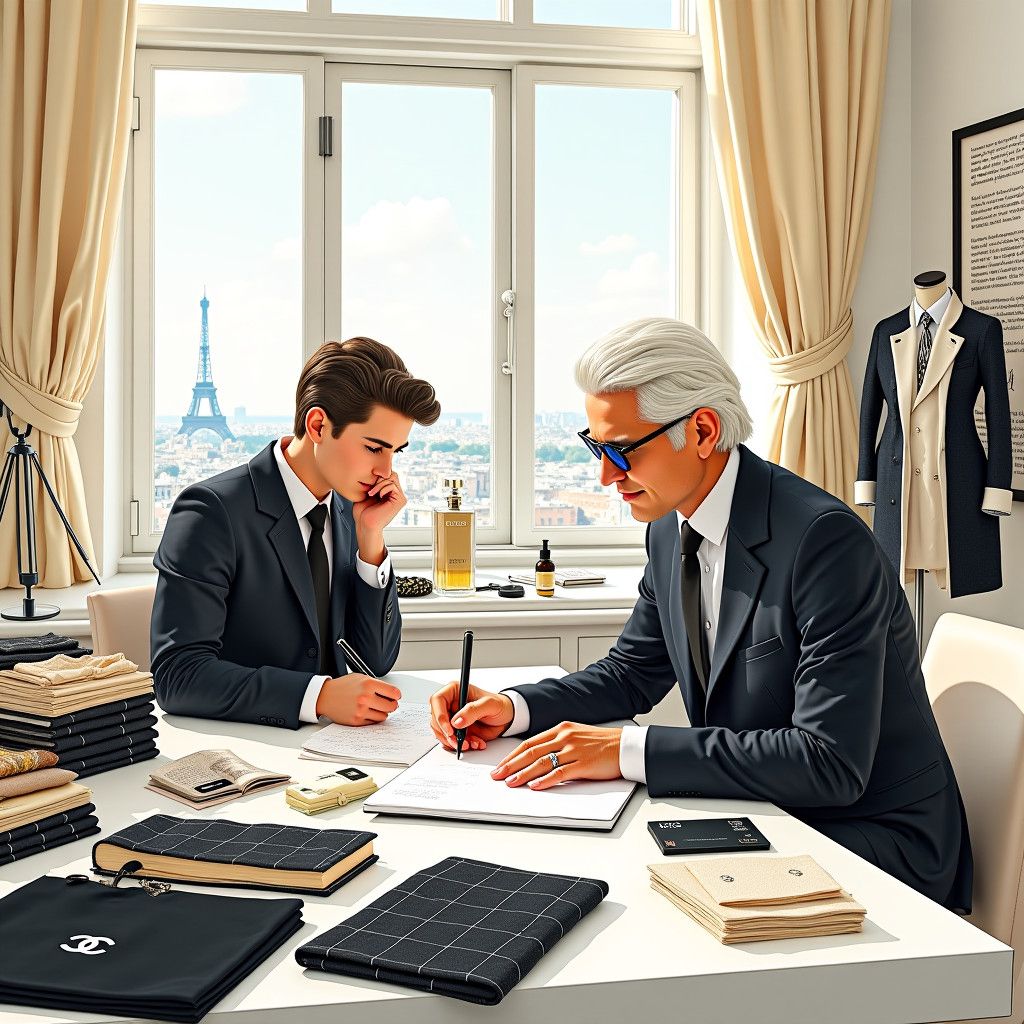When the fashion world lost Karl Lagerfeld on February 19, 2019, it was not just a loss of a designer; it was a loss of an icon who transformed Chanel into a powerhouse of luxury and creativity. His passing left a void that is felt deeply in the fashion industry, and as the brand now stands at a critical juncture, the question arises: who will carry forward Lagerfeld’s legacy while steering Chanel into its next era?
Reflecting on Lagerfeld’s transformative impact, it’s essential to explore the key strategies that defined his success at Chanel. Lagerfeld once suggested that the essence of progress lies in understanding the past. “Make a better future with the expanded elements of the past,” he said, and this philosophy proved crucial in reviving Chanel when he assumed directorial duties in 1983.
A primary lesson from Lagerfeld’s tenure is that brand heritage matters. He respected Chanel’s roots in Haute Couture while also recognizing the necessity for modern reinterpretation. Lagerfeld understood that Coco Chanel had made blunders towards the end of her career by dismissing contemporary trends like miniskirts and blue jeans. By avoiding elitism and embracing a broader view of fashion, he successfully rejuvenated the brand, appealing to a new generation.
Today, Chanel must identify a new creative director who possesses a profound understanding of this balance between tradition and innovation. The pressure is on the successor to revitalize the brand while preserving its iconic status. Current challenges include addressing criticisms about inconsistent quality and questionable creative directions in recent collections.
One avenue to impactfully restore the brand’s image is an unwavering commitment to quality. There have been significant concerns regarding a perceived decline in the craftsmanship of Chanel products, with flagship items witnessing dramatic price increases without corresponding enhancements in quality. The new creative leader must ensure that each piece reflects the exemplary craftsmanship that Chanel is known for.
Furthermore, as Lagerfeld demonstrated, creative innovation is paramount. The current landscape demands fresh perspectives and innovative approaches to storytelling. The new director should focus on leveraging Chanel’s rich artisanal collaborations that encompass exceptional skills in textiles, embroidery, and leatherwork. Bringing these elements to life in modern ways can justify premium pricing and reaffirm Chanel’s luxury status.
Chanel must also rethink its experiential marketing strategies. Lagerfeld was revered not just for his designs, but for the memorable ways he showcased them. His shows were complete narratives that transported audiences to different realms, making each collection a sensory experience. The brand should aim to captivate audiences through immersive and engaging presentations rather than relying heavily on screen-based media.
In addition to revitalizing creativity and quality, adopting a global perspective will be vital for Chanel’s future. Recently, fashion brands that have successfully expanded their reach often embrace diverse cultural elements and international craftsmanship. Drawing inspiration from varied global experiences, as seen in Dior’s successful outreach strategy in India, could invigorate Chanel’s offerings. The creative director must seek to connect with varied audiences worldwide while maintaining the brand’s French heritage.
The rumored frontrunner, Matthieu Blazy, has exhibited an ability to weave craftsmanship, modernity, and cultural richness into his work at Bottega Veneta. Whether he assumes the role or another individual steps in, any new creative director must heed Lagerfeld’s wisdom on innovation while embracing contemporary cultural narratives.
In conclusion, as Chanel seeks its next creative leader, the brand stands at a crossroads, grappling with how to honor Lagerfeld’s legacy while charting a path forward. By prioritizing quality, ensuring innovative creativity, crafting unforgettable experiences, and engaging on a global scale, Chanel can continue to thrive. If done correctly, the house can maintain its prestigious status as a cultural leader in the fashion industry, resonating with both loyal customers and aspiring fans alike.
Karl Lagerfeld’s guiding philosophy remains relevant to Chanel’s next chapter. As the brand transitions into this new era, it should keep in mind the essential integration of its past that paved the way for its present—a strategy that could very well carve out its future.












